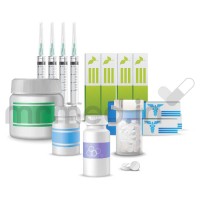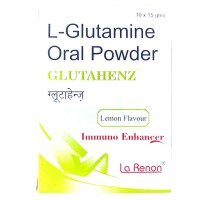Sevura Inhaler contains the active component Sevoflurane. It is used to produce a complete loss of sensation in the body, including unconsciousness, so that surgical operations or other procedures can be performed. This allows surgery to be carried out without pain or distress. This medication is used in the hospital environment only and has a quick induction and emergence time. This helps in efficiently managing the anesthesia process. It can be easily adjusted and titrated to maintain the desired level of sedation throughout the procedure. Sevura Inhaler is suitable for many patients, including pediatric and elderly populations. It can be safely used in various surgical procedures and with other anesthetic agents and adjuncts.
Individuals with known hypersensitivity or allergy to Sevura Inhaler or other halogenated ethers should not receive this anesthesia. Like other volatile anesthetics, it can trigger malignant hyperthermia, a rare but potentially life-threatening condition characterized by a severe reaction to certain medications used during general anesthesia. Patients with a personal or family history of MH or suspected susceptibility to MH should avoid Sevura Inhaler. Although it is primarily eliminated through exhalation, caution should be exercised in patients with severe renal impairment. Patients with certain pre-existing cardiac conditions, such as severe cardiovascular disease or unstable angina, may require caution when using this medication.
Therapeutic Effects of Sevura Inhaler
Pregnancy
Pregnant women must consult a doctor regarding the dosage and effects of Sevura Inhaler during pregnancy.
Breast Feeding
Sevura Inhaler is considered safe for breastfeeding mothers when taken within the recommended dosage range. So it is recommended to consult a doctor before taking it during breastfeeding.
Lungs
Sevura Inhaler is generally well-tolerated by the respiratory system. It has a low propensity to cause airway irritation and is commonly used in patients with normal lung function. However, caution should be exercised in patients with pre-existing respiratory conditions such as severe chronic obstructive pulmonary disease (COPD) or asthma.
Liver
While Sevura Inhaler is generally safe for the liver, it's always advisable to consult with a healthcare professional if you have a pre-existing liver condition or concerns about your liver health.
Alcohol
Both Sevura inhalers and alcohol can have central nervous system depressant effects, and their combined use can potentially lead to additive or synergistic effects, including increased sedation, respiratory depression, and impaired cognitive function.
Driving
Sevura Inhaler is an inhalation anesthetic that causes sedation and can impair cognitive function. As a result, it is not safe to drive or operate machinery immediately after receiving this anesthesia.
Serious:
- Allergic reactions
- Malignant hyperthermia (rapid increase in body temperature and muscle rigidity)
- Respiratory depression
Common:
- Nausea and vomiting
- Headache
- Dizziness
- Shivering
Sevura Inhaler is commonly used in pediatric anesthesia, but there are rare reports of postoperative agitation, delirium, and behavioral changes in children. Healthcare professionals will closely monitor pediatric patients and provide appropriate care.
Sevura Inhaler can be used in elderly patients; however, advanced age may be associated with increased anesthetic sensitivity. Healthcare professionals will carefully assess the patient's overall health, comorbidities, and physiological changes related to aging to determine the appropriate dosage and closely monitor the patient during anesthesia.
The risk of POCD, a temporary decline in cognitive function following surgery and anesthesia, can exist with any general anesthesia. However, the specific role of Sevura Inhaler in causing POCD is not well-established. Ongoing research aims to understand better the factors contributing to POCD and develop strategies to minimize its occurrence.
There is currently no evidence to suggest that Sevura Inhaler harms fertility or reproductive health in men or women. However, as with any medical intervention, discussing any concerns with healthcare professionals is essential to ensure a comprehensive understanding of potential effects.
Patients with a history of substance abuse or addiction, including alcohol or illicit drugs, should be cautious when using Sevura Inhaler. This combination may increase sedation and respiratory depression. Healthcare providers should be informed about substance abuse history to make informed decisions and adjust anesthesia management accordingly.
Common side effects of Sevura Inhaler can include nausea, vomiting, headache, dizziness, and shivering. These effects are generally mild and temporary.
Molecule name: Sevoflurane | Therapeutic class: Anesthesia |
Pharmacological class: General Anesthesia | Indications: Produce unconsciousness for surgical procedures |









